Abstract
Health and functional status data have been shown to have clinical utility in predicting outcome. Various metadata registries in the form of patient self-administered health assessment questionnaires have been incorporated into routine clinical care and clinical research of patients with rheumatic disease. Examples of such health assessment instruments are the Clinical Health Assessment Questionnaire (CLINHAQ) and the Modified Health Assessment Questionnaire (MHAQ). These instruments contain concepts that are an integral part of the health and functional status domain. Using an automated indexing tool we examined the clinical content coverage by SNOMED RT and the Unified Medical Language System (UMLS) Metathesaurus for health and functional status concepts identified in the MHAQ and CLINHAQ. Significant differences existed between the overall representational ability of SNOMED and UMLS for concepts identified in the MHAQ (49%, vs. 77% respectively, p < .005) and for concepts identified in the CLINHAQ (30% vs. 64% respectively p < .005). Representational capability by SNOMED-RT and UMLS for concepts in a given health assessment instrument was carried across four semantic classes of "attitudes", "symptoms", "activities", and "social attributes". The conceptual content coverage of health status assessment concepts contained in the MHAQ and CLINHAQ by SNOMED-RT and UMLS was incomplete but better for UMLS with its panoply of vocabulary sources. This observed overall improved representation by UMLS appeared to be due to better representation of concepts in "activities" and "social attributes" semantic classes. Representation of health or functional status concepts in a computerized medical record should be founded on a universally agreed concept model of that domain. Established functional and health status metadata registries can serve as important sources for concepts and candidate classes within that domain.
Full text
PDF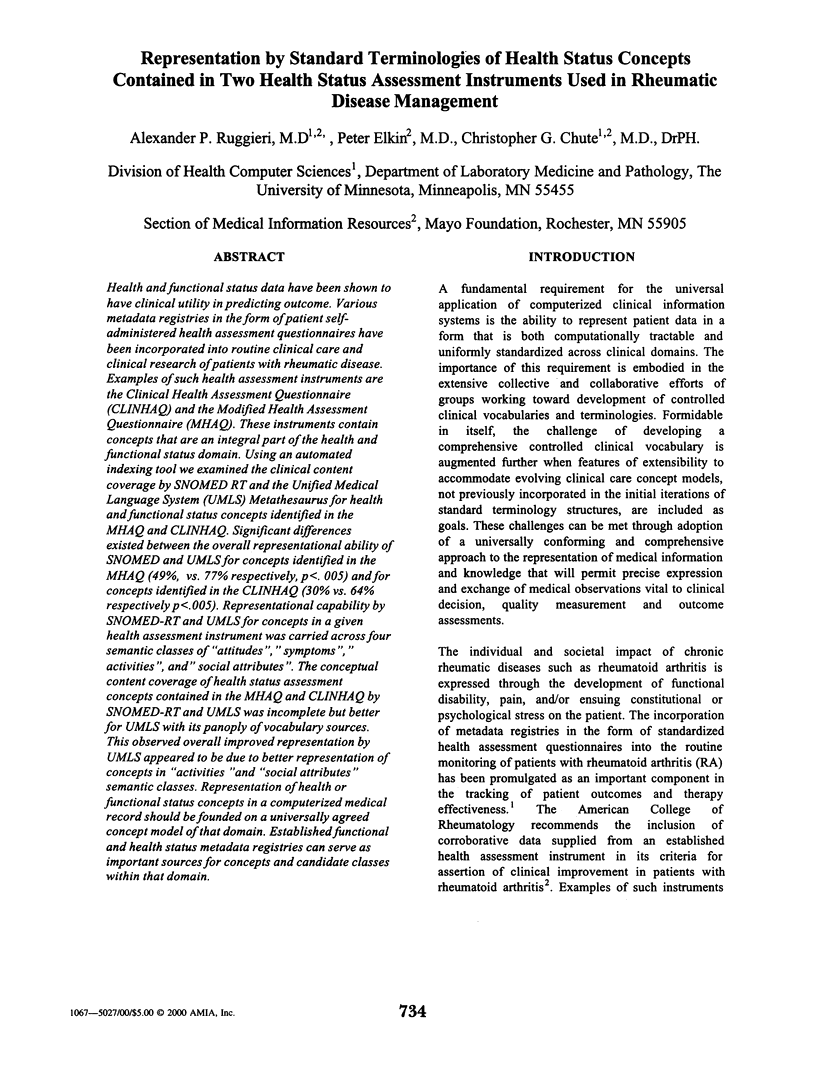
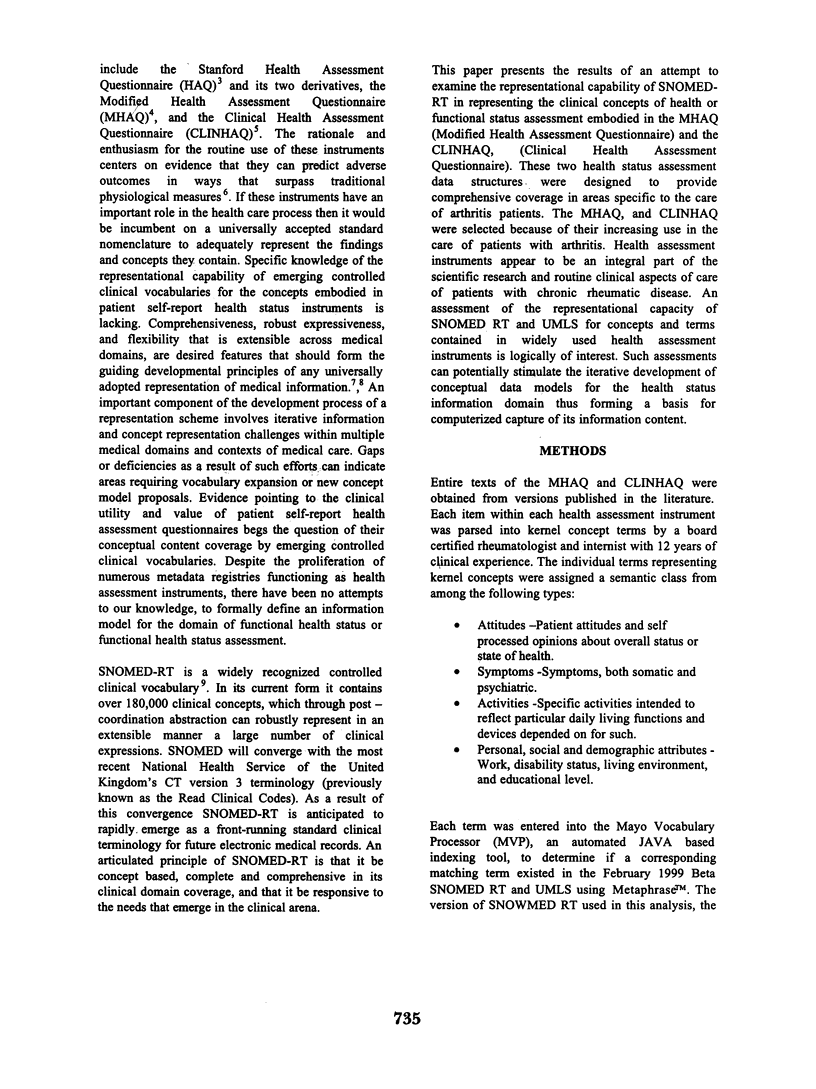
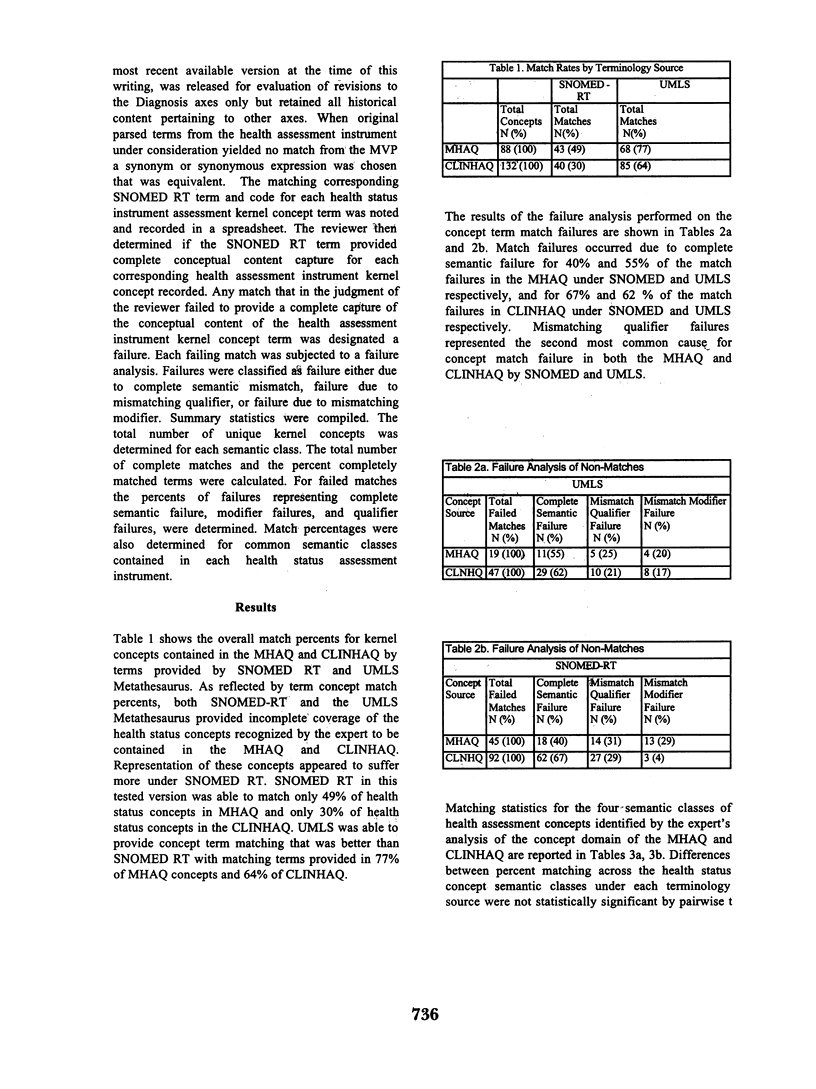
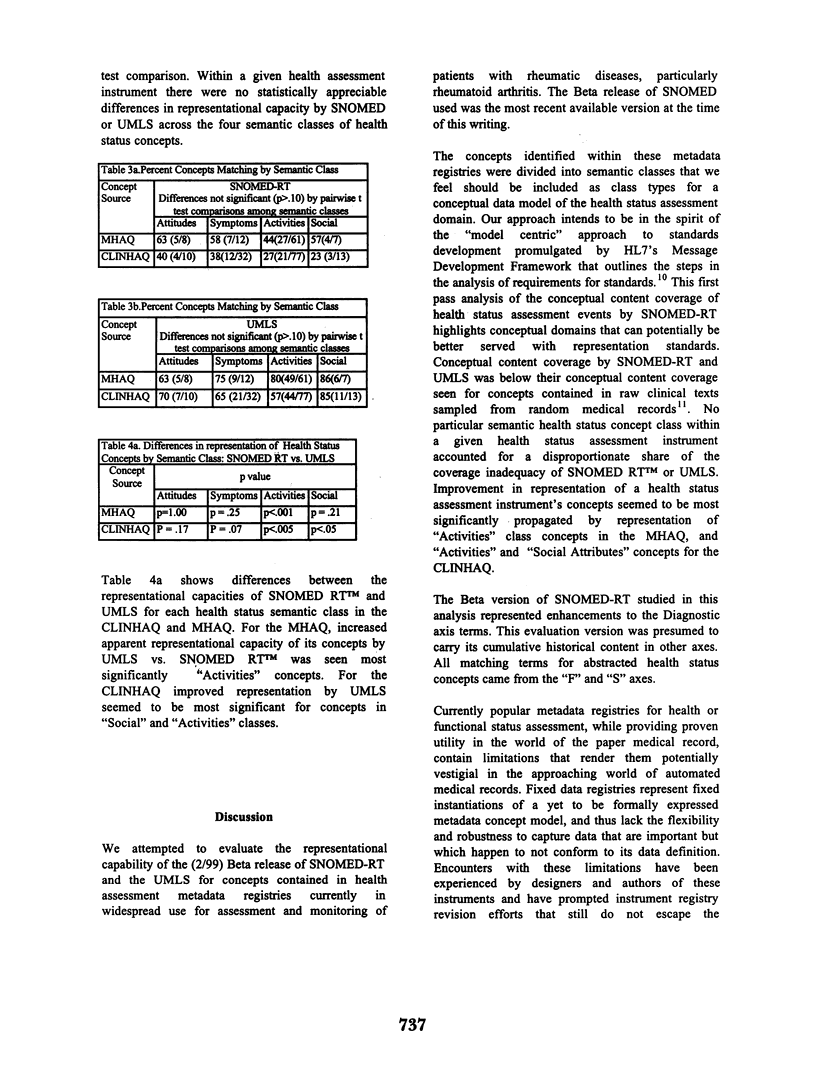
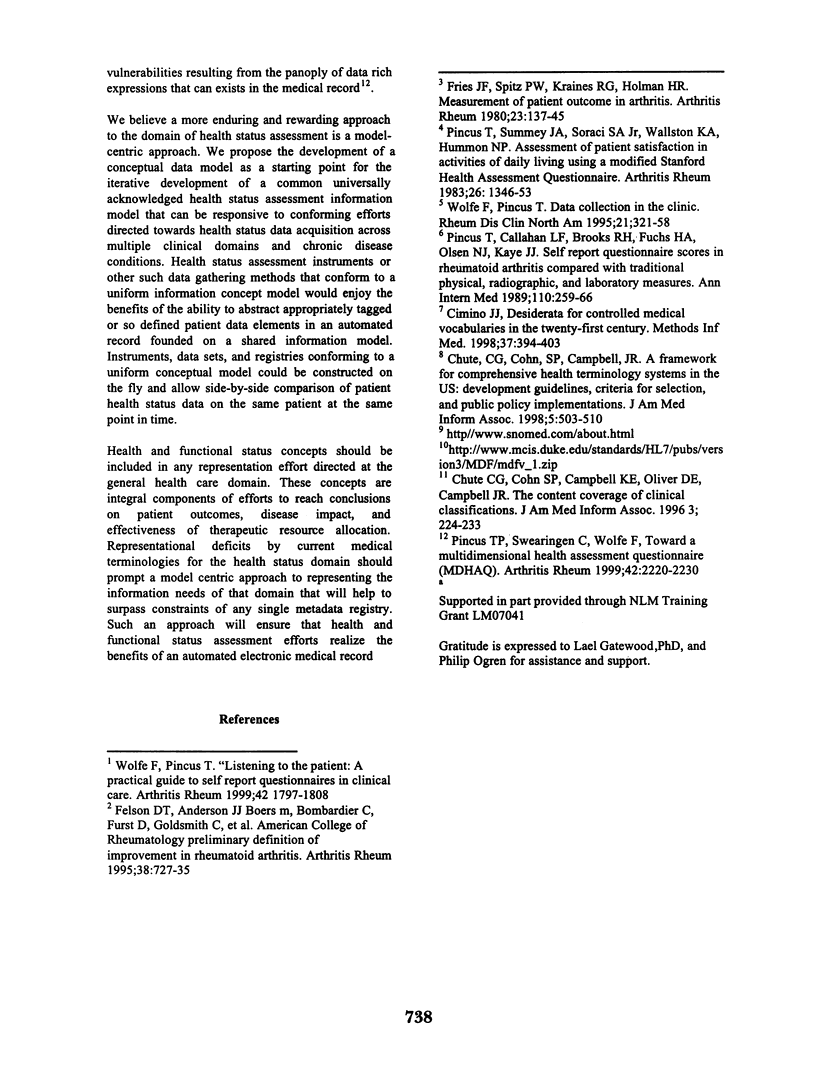
Selected References
These references are in PubMed. This may not be the complete list of references from this article.
- Chute C. G., Cohn S. P., Campbell J. R. A framework for comprehensive health terminology systems in the United States: development guidelines, criteria for selection, and public policy implications. ANSI Healthcare Informatics Standards Board Vocabulary Working Group and the Computer-Based Patient Records Institute Working Group on Codes and Structures. J Am Med Inform Assoc. 1998 Nov-Dec;5(6):503–510. doi: 10.1136/jamia.1998.0050503. [DOI] [PMC free article] [PubMed] [Google Scholar]
- Chute C. G., Cohn S. P., Campbell K. E., Oliver D. E., Campbell J. R. The content coverage of clinical classifications. For The Computer-Based Patient Record Institute's Work Group on Codes & Structures. J Am Med Inform Assoc. 1996 May-Jun;3(3):224–233. doi: 10.1136/jamia.1996.96310636. [DOI] [PMC free article] [PubMed] [Google Scholar]
- Cimino J. J. Desiderata for controlled medical vocabularies in the twenty-first century. Methods Inf Med. 1998 Nov;37(4-5):394–403. [PMC free article] [PubMed] [Google Scholar]
- Felson D. T., Anderson J. J., Boers M., Bombardier C., Furst D., Goldsmith C., Katz L. M., Lightfoot R., Jr, Paulus H., Strand V. American College of Rheumatology. Preliminary definition of improvement in rheumatoid arthritis. Arthritis Rheum. 1995 Jun;38(6):727–735. doi: 10.1002/art.1780380602. [DOI] [PubMed] [Google Scholar]
- Fries J. F., Spitz P., Kraines R. G., Holman H. R. Measurement of patient outcome in arthritis. Arthritis Rheum. 1980 Feb;23(2):137–145. doi: 10.1002/art.1780230202. [DOI] [PubMed] [Google Scholar]
- Pincus T., Callahan L. F., Brooks R. H., Fuchs H. A., Olsen N. J., Kaye J. J. Self-report questionnaire scores in rheumatoid arthritis compared with traditional physical, radiographic, and laboratory measures. Ann Intern Med. 1989 Feb 15;110(4):259–266. doi: 10.7326/0003-4819-110-4-259. [DOI] [PubMed] [Google Scholar]
- Pincus T., Summey J. A., Soraci S. A., Jr, Wallston K. A., Hummon N. P. Assessment of patient satisfaction in activities of daily living using a modified Stanford Health Assessment Questionnaire. Arthritis Rheum. 1983 Nov;26(11):1346–1353. doi: 10.1002/art.1780261107. [DOI] [PubMed] [Google Scholar]
- Pincus T., Swearingen C., Wolfe F. Toward a multidimensional Health Assessment Questionnaire (MDHAQ): assessment of advanced activities of daily living and psychological status in the patient-friendly health assessment questionnaire format. Arthritis Rheum. 1999 Oct;42(10):2220–2230. doi: 10.1002/1529-0131(199910)42:10<2220::AID-ANR26>3.0.CO;2-5. [DOI] [PubMed] [Google Scholar]
- Wolfe F., Pincus T. Data collection in the clinic. Rheum Dis Clin North Am. 1995 May;21(2):321–358. [PubMed] [Google Scholar]
- Wolfe F., Pincus T. Listening to the patient: a practical guide to self-report questionnaires in clinical care. Arthritis Rheum. 1999 Sep;42(9):1797–1808. doi: 10.1002/1529-0131(199909)42:9<1797::AID-ANR2>3.0.CO;2-Q. [DOI] [PubMed] [Google Scholar]


